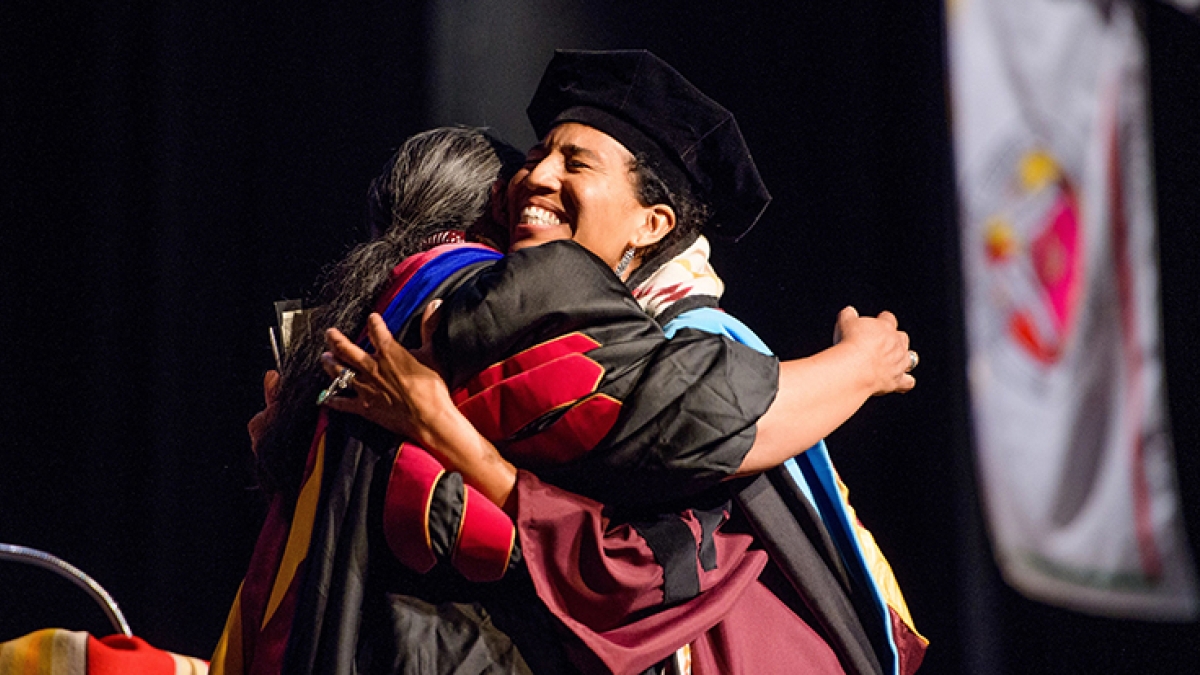Arizona State University has been awarded two new grants to support education among Arizona’s tribal communities. The Arizona Department of Education is allocating $1 million to the Preparing Educators for Arizona's Indigenous Communities Project. The U.S. Department of Education has allocated $1.4 million to the same project through its Indian Educational Professional Development Program. Both grants reflect the Arizona Board of Regents’ commitment to increase access to higher education and educational attainment throughout Arizona.
Combined, the funds will help the program (abbreviated PEAIC and pronounced “peak”) prepare 140 Indigenous educators.
The federal funds will support tuition, fees and expenses to prepare 20 early childhood education teachers in the federally recognized Gila River Indian Community and the Salt River Pima-Maricopa Indian Community. The project will recruit participants from existing pools of paraprofessional employees working in the partner communities. Students will take classes online to earn a Bachelor of Applied Science in early childhood studies and conduct professional internships in schools in their communities.
The Arizona Department of Education funds will support the preparation of 120 educators, including teachers in Mary Lou Fulton Teachers College's Special Education and Elementary Education dual-certification program and extended kin network educators who can complement the work of certified teachers. Students in the bachelor’s degree program will be able to take courses in person or remotely. The program puts a premium on flexibility and access. Additionally, all students will be eligible for full Arizona Teachers Academy tuition scholarships.
PEAIC extended-kin-network home and community educators will benefit from a suite of early childhood, elementary and secondary education learning resources called nanocourses. These courses are designed to equip parents, family members, caregivers and community members to provide learning support that complements the school experience of learners. They are an example of the community educator resources that Mary Lou Fulton Teachers College is developing.
Nicole Thompson, vice dean of Mary Lou Fulton Teachers College’s division of teacher preparation, will be the principal investigator on both grants.
“The extended-kin-network component of this is absolutely crucial,” she said. “Everything we know about educational outcomes tells us that success is not only about what happens in schools. It is also about what happens in homes and communities. If we want kids to learn, we need to empower entire communities to help them.
"We need to make sure that our project is woven into the community, not something we impose on it. That’s why both the degree-program coursework and the community educator nanocourses address issues of cultural and linguistic diversity and other topics of contextual relevance to tribal communities. We think this is a great start to strengthening educators and education in Arizona’s tribal communities. We’re keeping our minds and hearts open to what we need to learn from and about the communities we serve while leveraging technology to make the best of ASU accessible and relevant to those communities," Thompson said.
More Arts, humanities and education

ASU’s Humanities Institute announces 2024 book award winner
Arizona State University’s Humanities Institute (HI) has announced “The Long Land War: The Global Struggle for…

Retired admiral who spent decades in public service pursuing a degree in social work at ASU
Editor’s note: This story is part of coverage of ASU’s annual Salute to Service.Cari Thomas wore the uniform of the U.S. Coast…

Finding strength in tradition
Growing up in urban environments presents unique struggles for American Indian families. In these crowded and hectic spaces,…
